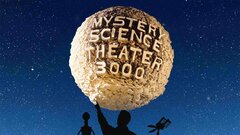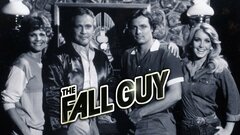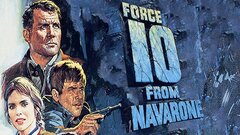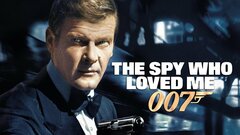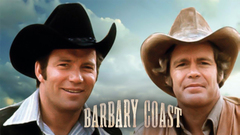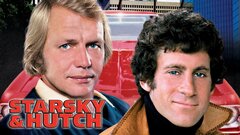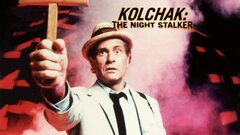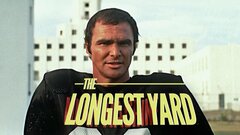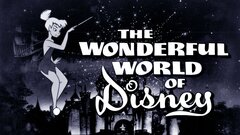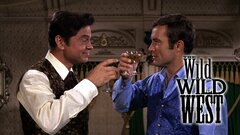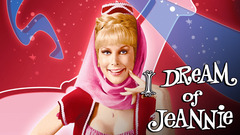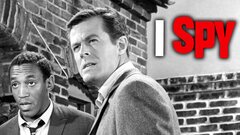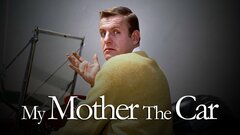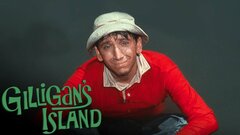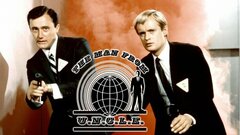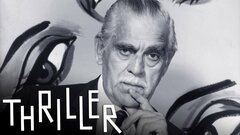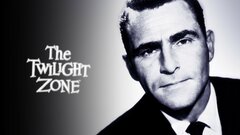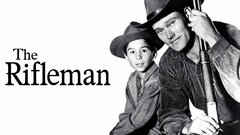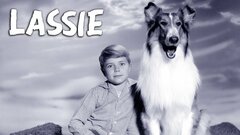Actor Richard Kiel's towering 7'1.5" height granted him a five-decade career in Hollywood playing henchmen, strongmen and costumed creatures, as well as a brief flirtation with stardom as the steel-toothed Jaws in "The Spy Who Loved Me" (1976) and "Moonraker" (1979). Though rarely afforded top billing or even dialogue, Kiel was a memorable presence on countless television shows like "The Twilight Zone" (CBS, 1959-1964) and "The Wild, Wild West" (CBS, 1965-1969) and features like "The Longest Yard" (1974) and "Silver Streak" (1976).
His turn as Jaws opposite Roger Moore's James Bond in "Spy" struck a chord with audiences, which earned him a second franchise appearance in "Moonraker" and a newfound career as a heroic, even comic character actor in "Cannonball Run II" (1984) and other films. Health issues curtailed Kiel's acting career in the new millennium, though his popularity in the Bond films continued unchecked, thanks to voiceover reprisals as Jaws in various video game spin-offs. Though Kiel made his name playing larger-than-life or supernatural characters, his lasting fame came from the degree of humanity that he brought to each of those roles. His death on September 10, 2014 brought fond remembrances from co-stars and fans alike.
Born Richard Dawson Kiel in Detroit, MI on Sept. 13, 1939, his considerable height and unique features were the result of acromegaly, a pituitary condition that also affected motivational speaker Anthony Robbins, actor Rondo Hatton and wrestler André "The Giant" Roussimoff. He initially worked as a cemetery plot salesman before heading west to try his hand in the movies. Kiel was discovered while working as a bouncer at a bar in Los Angeles, which led to his television debut as a bare knuckles fighter in an episode of "Klondike" (NBC, 1960-61). He soon landed an agent and began a string of bit and supporting roles in movies and episodic television, usually as silent henchmen, oversized toughs and the occasional monster, as in the low-budget pictures "The Phantom Planet" (1961) and "House of the Damned" (1964).
His heavy-lidded features lent an air of menace to his turn as the Kanamit, a representative of an alien race with a promise of peace that hid a diabolical scheme in "To Serve Man," an iconic third-season episode of "The Twilight Zone." On occasion, he played agreeable types, most notably as a revived caveman with a gentle heart in the B-thriller "Eegah!" (1961), but for the most part, Kiel was a sort of living obstacle for the hero to overcome.
From 1965 to 1968, he enjoyed a recurring role as Voltaire, the towering, mute henchman to the diminutive but demonic Dr. Miguelito Loveless (Michael Dunn) on "The Wild, Wild West." Persistence eventually led to more substantive roles in the 1970s, including a member of the prison football team in "The Longest Yard" (1974) and series regular work on "Barbary Coast" (ABC, 1975-76). Despite these advances, Kiel was still frequently cast as monsters and goons, including two stints as supernatural creatures on the cult series "Kolchak: The Night Stalker" (ABC, 1974-75). He also briefly tested for the title role in "The Incredible Hulk" (CBS, 1977-1982), but his average build and difficulty with the contact lenses required for the creature resulted in his scenes being reshot with body builder Lou Ferrigno as the Hulk.
However, a supporting turn as a criminal with sharp gold teeth in the comedy "Silver Streak" preceded his star-making turn as Jaws, an indestructible henchman with steel-capped teeth in the James Bond adventure "The Spy Who Loved Me" (1976). Fitted with prosthetic dentures so uncomfortable that he could only wear them for 30 seconds at a time, Kiel nevertheless won over audiences by virtue of the character's relentless pursuit of Roger Moore's 007, which earned him a reprieve from his intended death scene at the end of the film. Jaws would subsequently return for 1979's "Moonraker," which saw him not only switch allegiances to Bond in the picture's science fiction-styled finale, but also find love in the form of 5'1" actress Blanche Ravalec.
The character remained one of the most popular in the entire James Bond franchise, and was frequently revived in animated and video game spin-offs. The success of the Bond pictures led to a brief uptick in Kiel's career, which soon grew to include major supporting roles as a Communist Yugoslavian fighter in "Force 10 from Navarone" (1978) and a comic loan shark in "So Fine" (1981). A gentle man in real life who had become a born-again Christian after a debilitating bout with alcoholism, Kiel's innately kind nature soon came to the forefront in comic projects like "Cannonball Run II" (1984), which mined maximum broad laughs by casting him as the driver for Jackie Chan's pint-sized Mitsubishi.
By the middle of the decade, he had succeeded in leaving behind the menacing roles that had formed the backbone of his career; even his company thug in "Pale Rider" (1985) joined forces with director-star Clint Eastwood by the picture's end. In 1991, he co-wrote, produced and starred in the family film "The Giant of Thunder Mountain," about a hermit befriended by a young girl. The following year, Kiel suffered a severe head injury in a car accident that affected his balance. He subsequently curtailed his acting career, save for bit parts like his turn in "Happy Gilmore" (1996) as Adam Sandler's boss. Kiel subsequently wrote his autobiography, Making It Big in Hollywood (2002) before teaming with Oscar-winning screenwriter Pamela Wallace for Kentucky Lion: The True Story of Cassius Clay (2007), a biography of the 19th century abolitionist and ambassador.
Kiel's final film work came with a small voice role in the Disney animated hit "Tangled" (2010). Richard Kiel died at the age of 74 on September 10, 2014, in Fresno, California, after suffering complications from a broken leg.








